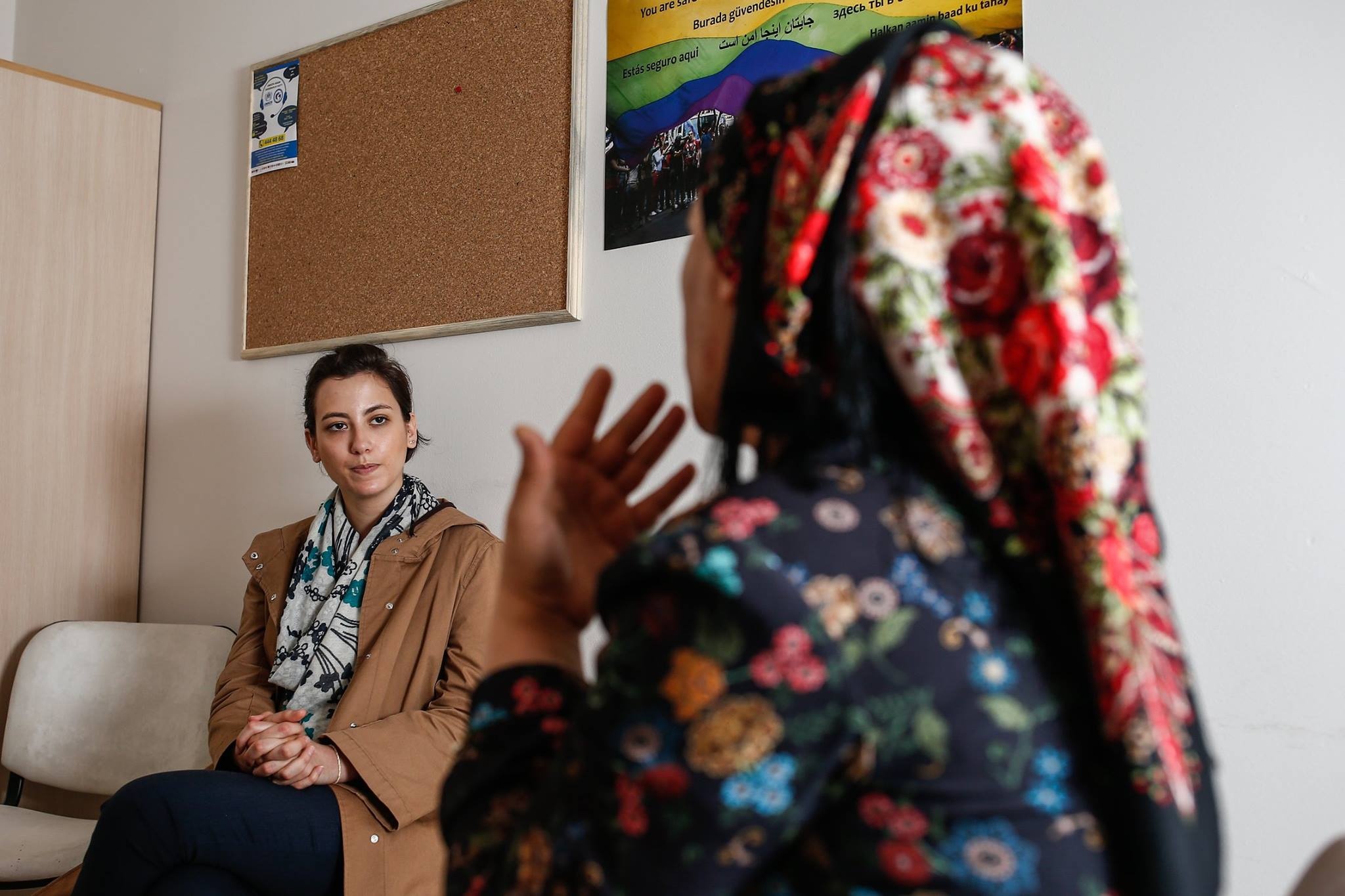Through Amira's eyes

Through Amira's eyes
Amira fled her hometown in the Aleppo region in March 2015, embarking on a long journey that took her and her two children to Istanbul. Through Amira’s eyes, you can see that she has the resilience to stay strong for the well-being and future of her two children, Nour 11 years of age and Rashad, 4 years of age.
For the first six months, they slept on one single wool blanket that they used as a mattress. “The three of us used to sleep on the blanket, using the very few clothes we had as pillows and covers,” says Amira, thinking back on the times of struggle. During those days, she would hear about irregular ways of moving onward, out of Turkey, and everybody she knew, with whom she made the journey from Syria to Istanbul had left. Amira did not consider leaving Turkey. She says it was too dangerous with two small children and that she would not put them at risk.
Her daughter Nour is attending school and is currently in 5th grade. Her favourite topic is Arabic grammar and literature. Amira wants her to become a doctor and she says she is determined to send Nour to school no matter what. Amira explains that Nour approached her one day asking if she would have to drop out from school to work. Amira tells us she told Nour that she will continue to go to school and that she is there to make sure she gets the education she needs. Her son is still too young but when the time comes, Amira is determined that he will go to school too. Amira is full of hope; she has good relations with her Turkish neighbours and she is learning Turkish.

UNHCR has been helping Amira by providing regular counseling in terms of access to rights, entitlements, and basic services as well as psycho-social support through its partners.
Currently, there are over 3 million registered Syrian refugees in Turkey and refugee women (over the age of 18) represent 25 per cent of the Syrian refugee population in Turkey. With the generous support received from the European Commission - Civil Protection & Humanitarian Aid Operations - ECHO (ECHO), UNHCR is able to address the specific protection needs of female-headed households like Amira’s family who are granted Temporary Protection (TP) from the Turkish Government. Syrians under the TP are able to benefit from assistance, medical care and access to education and to the labor market. UNHCR supports the Turkish authorities in addressing the needs through a set of targeted interventions. These activities include protection monitoring, providing counseling to persons with specific needs, providing legal and psycho-social assistance to persons of concern and information dissemination.
The European Union is a leading global donor of humanitarian aid. Through the European Commission’s Humanitarian Aid and Civil Protection department (ECHO), the EU helps over 120 million victims of conflict and disasters every year. With headquarters in Brussels and a global network of field offices, ECHO provides assistance to the most vulnerable people solely on the basis of humanitarian needs, without discrimination of race, ethnic group, religion, gender, age, nationality or political affiliation.
Special thanks to the Association for Solidarity with Asylum Seekers and Migrants SGDD - ASAM for supporting UNHCR in the implementation of its protection activities.

